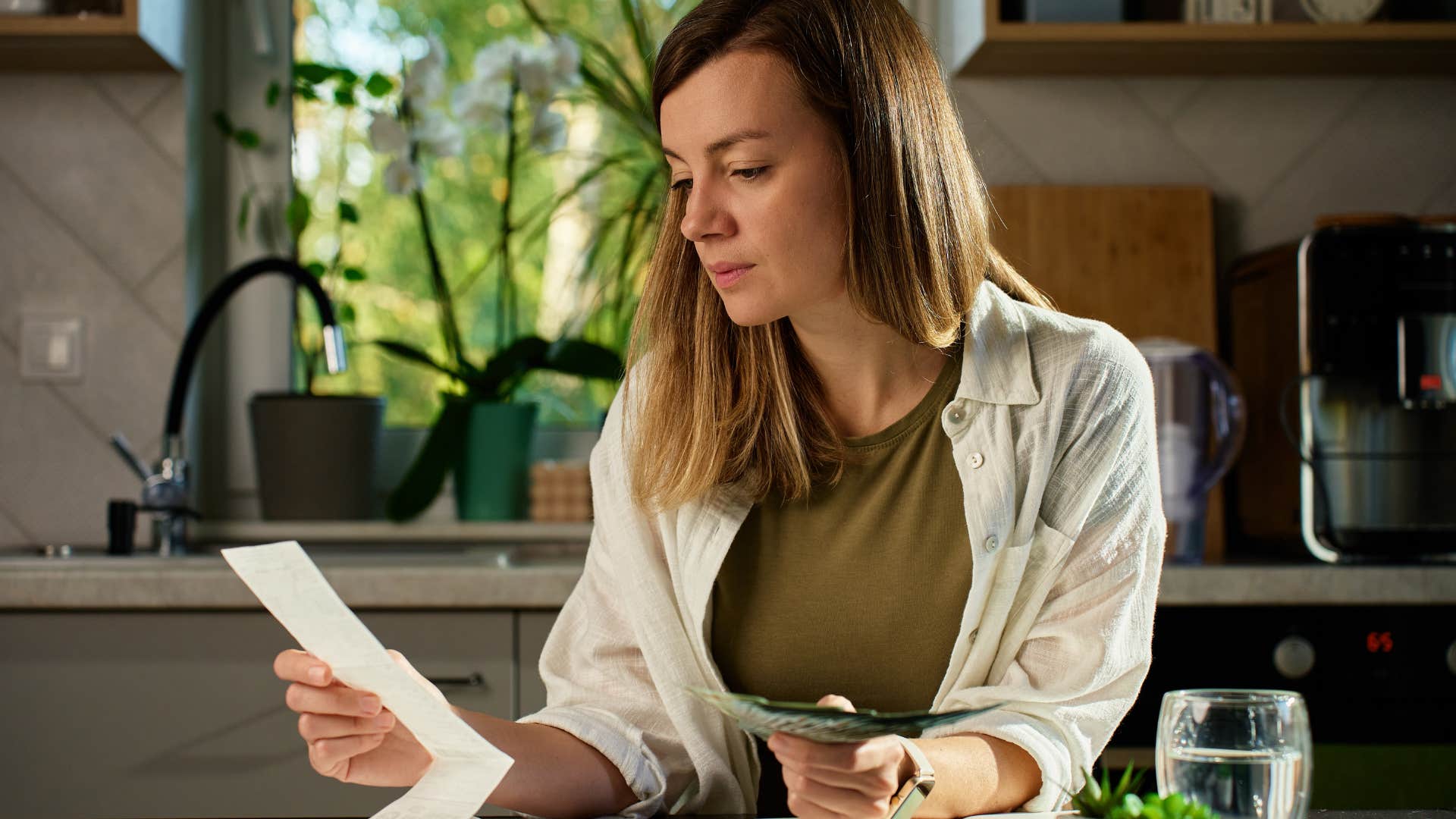People Who Save Every Plastic Bag As Adults Usually Grew Up With These 11 Frugal Beliefs
If someone you know keeps every plastic bag they bring home, they likely grew up learning to manage money carefully.
 Miljan Zivkovic / Shutterstock
Miljan Zivkovic / Shutterstock People who save every plastic bag as adults usually do so because of the frugal beliefs they grew up around. These beliefs caused them to develop a frugal and scarcity mindset that dictates not only the way they spend money, but also the way they save it, how resourceful they are, and how they budget for their future needs.
They will want to find ways to repurpose items they already have and always try to avoid spending money on items that they already have or that they really do not need. Their upbringing has allowed them to develop a self-sufficiency that benefits their long-term financial needs and goals.
People who save every plastic bag as adults usually grew up with these 11 frugal beliefs
1. Everything has a second life
 Ground Picture / Shutterstock
Ground Picture / Shutterstock
People who save every plastic bag as adults usually grew up with the frugal belief that everything has a second life. If a scarcity mindset was prevalent during their childhood, they may have developed the belief that being resourceful is best.
When they save plastic bags, it is likely due to the fear of future needs that this kind of mindset has been enforced within them. If they fear that they won't be able to meet the demand for resources in the future, they will be more inclined to save things like used plastic bags.
2. Good quality items should be mended, not replaced
 Geber86 / Shutterstock
Geber86 / Shutterstock
If an adult grew up with the frugal belief that good-quality items should be mended, not replaced, they are most likely to save plastic bags. If their parents were always mending things when they broke as they grew up, this would become a learned behavior in their adulthood.
They may also have a fear of waste. If they still consider the plastic bag useful, it will be very difficult for them to throw it away. Even if it has a tear in it or is messed up in some way, they will choose to find a way to mend it before they throw it away or choose to replace it with another plastic bag.
3. If you can make it, don't buy it
 Lazy_Bear / Shutterstock
Lazy_Bear / Shutterstock
When an adult saves every plastic bag, they likely grew up with the frugal belief that if you can make something, then you shouldn’t buy it. This belief leads a person to become very resourceful and want to avoid wasting things that could still have purpose.
This belief is rooted in the desire for self-sufficiency and financial freedom. By making things instead of needing to buy them, money can be saved and contribute to these desires.
4. A penny saved is a penny earned
 Gorodenkoff / Shutterstock
Gorodenkoff / Shutterstock
If someone grew up with the frugal belief that a penny saved is a penny earned, they will likely save every plastic bag when they become an adult. The idea is that no matter how much an individual actually earns, if they spend less than they earn consistently and save up, they will see an increase in their overall financial health.
It emphasizes the impact that even a small savings can have on something financially significant. In terms of the paper bag, it is a very similar scenario. While the paper bag itself may seem insignificant, by saving multiple of them, their value grows and there is potential to use them in the future.
5. You should save for a rainy day
 PeopleImages / Shutterstock
PeopleImages / Shutterstock
Adults who grew up with the frugal belief that they should save for a rainy day will typically save many plastic bags. This comes from the idea that all items have some kind of value and therefore should not be wasted.
Frugality beliefs like this usually stem from a want for a sense of security, especially financially. If an individual saves money or items, they instantly start to feel more prepared for whatever financial struggles life throws at them in the future.
6. Only take what you will use
 Julia Zavalishina / Shutterstock
Julia Zavalishina / Shutterstock
An adult who was raised to have a frugal mindset likely has the belief that they should only take what they will use. This belief stems from their desire to save as much money as they can while also making the most out of every item.
By saving and making the most of items, like plastic bags, they feel as though they will be more prepared for future needs. When unexpected situations arise, they feel a sense of security in knowing that they either have saved money or they have numerous items that can be repurposed and reused at any time.
7. Waste not, want not
 PeopleImages / Shutterstock
PeopleImages / Shutterstock
If someone grew up in an environment where they had limited resources, therefore making these resources very valuable, they may have grown up with a frugal belief. A person who saves every plastic bag may have grown up in this environment where they learned the belief of waste not, want not.
This belief is deeply rooted in the idea of resourcefulness. Instead of only using an item once, they think that reusing or repurposing the item is a more financially sound decision. The firm belief that they have in the usefulness of things drives them to avoid being wasteful.
8. Need vs. want is a crucial distinction
 Dragana Gordic / Shutterstock
Dragana Gordic / Shutterstock
Growing up in a household with frugal beliefs and a scarcity mindset will lead an individual to understand the clear distinction between wants and needs. When this person becomes an adult, this belief will stick with them and may cause them to develop certain habits, like saving every plastic bag they use.
This person probably aims to avoid too much consumerism and has a true desire to limit waste. Instead of buying new plastic bags, they will consider these items to still be usable and can potentially be repurposed. Instead of buying more items like this out of want, they realize that it is not a necessity. They will trim down their spending on both wants and needs and only buy items that they really need because they cannot be reused, like food and water.
9. The cheapest option is usually the best option
 Prostock-studio / Shutterstock
Prostock-studio / Shutterstock
Individuals who save every plastic bag usually grew up in a household where frugality was prioritized and wastefulness or spending money on unnecessary items was not tolerated. This likely means that they grew up with the frugal belief that the cheapest option is usually the best option.
Even when their financial situation improves as they get older, they will still likely look for deals and choose the cheapest options when shopping. They do not see it fit to “throw away” money, which means that they won't buy the most expensive things and they will attempt to reuse things, like plastic bags, until they can’t anymore.
10. Buying in bulk saves money in the long run
 Basicdog / Shutterstock
Basicdog / Shutterstock
Growing up with a frugal upbringing will cause an individual to develop certain beliefs about money. If even in adulthood, a person saves every plastic bag, they may have also learned the frugal belief that buying in bulk saves money in the long run.
If they do both of these things, it is likely because they have learned behaviors from the people who raised them. Both are attempts to save money and prepare for future needs by being resourceful and minimizing waste.
11. Shop from your pantry first
 Andrey_Popov / Shutterstock
Andrey_Popov / Shutterstock
Someone who saves every plastic bag as an adult will have likely learned the frugal belief growing up that they should always shop the pantry first before actually going shopping at a grocery store. These two things are an attempt to reduce waste and avoid buying items that they already have and that are still usable.
This belief helps an individual ensure that they use what they already have before they buy more. Using something like a plastic bag several times before going out and buying more is an example of this belief and the desire to be resourceful.
The kind of behaviors and mindsets that were ingrained in a person growing up are typically a driving force behind the habits they develop as an adult. A frugal mindset will stick with individuals well beyond their youth.
Kamryn Idol is a writer with a bachelor's degree in media and journalism who covers lifestyle, relationship, family, and wellness topics.

